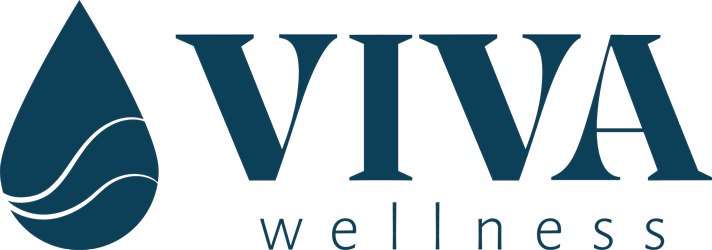According to the American Cancer Society, “Breast cancer is the most common cancer in women in the United States, except for skin cancers—accounting for about 30% (or 1 in 3) of all new female cancers each year. Overall, the average risk of a woman in the United States developing breast cancer sometime in her life is about 13%. This means there is a 1 in 8 chance she will develop breast cancer. This also means there is a 7 in 8 chance she will never have the disease.”
We don’t use stats to scare you, and really that’s great news that 7 in 8 will never hear those words, but we feel an obligation to share the importance of breast health and offer insight into how the lymphatic system and treatments can influence not only health, but cancer prevention, detection, and treatment.
We plan to dive more deeply into this topic over the course of the month on the blog and on social media, but in celebration of launching our Postoperative Lymphatic Drainage Treatment, we wanted to offer something special to those experiencing breast cancer or who can proudly consider themselves survivors.
BREAST X LYMPHATIC CONNECTION
We’ve broken down a more detailed look at the role of the lymphatic system earlier on the blog, but there’s a closer link between the breasts and the system for the placement of components of this system in relation to them. When the lymph circulation becomes sluggish, which is more common than you’d think, as this system has no pump of its own (and requires physical movement and/or specific intentional intervention) and is inundated with constant tasks and threats, not only is the system working harder to do its job, but other parts of the body may also begin to feel a negative influence. When cells are not being properly detoxified, cancers may develop. Vessels within the breasts move fluids to lymph nodes nearby: sternum, clavicle, armpit. Check out the full map of the lymphatic system via the Cleveland Clinic.
Other than lymphatic drainage treatments (such as those we offer) and the self massages we suggest below, there are a number of lymphatic drainage support tips for post-surgical and how to prepare for surgery with lymphatic drainage to speed healing.
BREAST CANCER PREVENTION & HEALTH
A healthy lymphatic system is a healthier system that will increase your chances of never receiving a diagnosis. Two things that are really beautiful about the practice of performing breast massage and receiving lymphatic treatments for overall lymphatic health is that you are both tending to the overall health of your entire system, there are many additional benefits to the breasts themselves which you can explore in the resources below, but the intervention itself will help you know if something feels off.
Breast massage may be performed in many methods and serves many purposes—it’s even linked to ancient cultures and traditions that have been practiced for hundreds of years—but the main thing is that it’s being done.
Why does this matter? This will focus on draining fluid to the 35-50 nodes in the area. This kickstarts circulation of the lymphatic.
FIRST, make sure that your protocol opens the clavicles and armpits to ensure that what’s being moved locally can be released completely. If your protocol does not include that release, watch this video.
Here are a few others that we found:
- How to encourage lymph health for breast health: Lymphatic Drainage Massage Tutorial for Breast Health | Dr. J9 Live
- An Ayurvedic Guide to Breast Health
BREAST CANCER DETECTION
When you’re performing your breast massage frequently, it will be easier to tell if something feels different. You may want to pen-in a single more focused self-exam date each month, but again, there’s a good chance that regular self-massage would help you notice anything of concern to take to your doctor. Here is a thorough exam, as shown by Dr. Kruper out of City of Hope Hospital: How to Do a Better Breast Self-Exam | Laura Kruper, M.D. | City of Hope
BREAST CANCER TREATMENT
Whether surgery (lymph node removal, mastectomy), radiation, or simply wanting to support your body’s immune response, lymphatic drainage treatments are your ally. There will be a different protocol suggestion based on your unique situation, but moving the fluids and therefore assisting your body in processing and excreting toxins simply supports the lymphatic system’s many roles. If it is overwhelmed with fluid, it cannot deploy its fullest capacity to fight infection, virus, toxins, cellular waste, etc. Additionally, 15% to 30% of patients experience lymphedema after breast-cancer surgery. Lymphadema is known to have significant negative physical and psychological impact on individuals. When you are fighting, you need as many physical and mental/emotional/spiritual resources ready to help. Lymphatic drainage treatments can help.
Additional resources to explore:
- More insight into the lymphatic x breast connection
- Breast care information, advocacy, self-love, as well as massage protocol, organic massage oil and post-surgery healing balm
- Incredibly thorough look at the lymphatic system and how self-massage has a place in your self-care routine
- Simple, straightforward stats and technique re: breast massage and lymphatic care
We honor you and your journey—we know how sensitive and serious this topic is. If we can support you, please take the first step in reaching out.
Reading our words, viewing our images, and taking action on anything you see or read is at your own discretion. Social media, blogs, and newsletters are not substitutes for medical advice. Please consult a healthcare provider before beginning any exercise or diet program. Hey, we have those on staff, book a consult!
